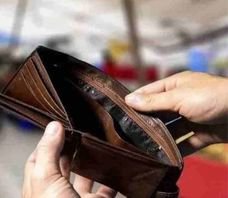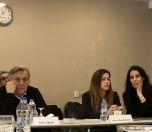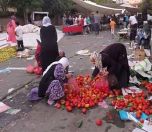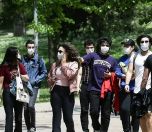Click to read the article in Turkish
More than half of the public in Turkey prefer a democratically elected government and a powerful leader who "doesn't have to deal with the parliament," according to Kadir Has University's Turkey Trends 2021 study.
The respondents were presented with five statements as to how the country should be governed and asked to express their opinion on whether these statements were good for the country.
More than 55 percent of the respondents stated that a democratic system is either "good" or "very good" for the country and 33 percent stated that it is "neither good nor bad." Only 11.6 percent said it is "bad" or "very bad."
The answers for "a powerful leader who doesn't have to deal with the parliament and elections" were quite similar, with 51.2 percent of the respondents stating that it would be good for the country.
Only 20.1 percent of the respondents said such a system would be bad for the country and 26.7 percent said it would be neither good nor bad.
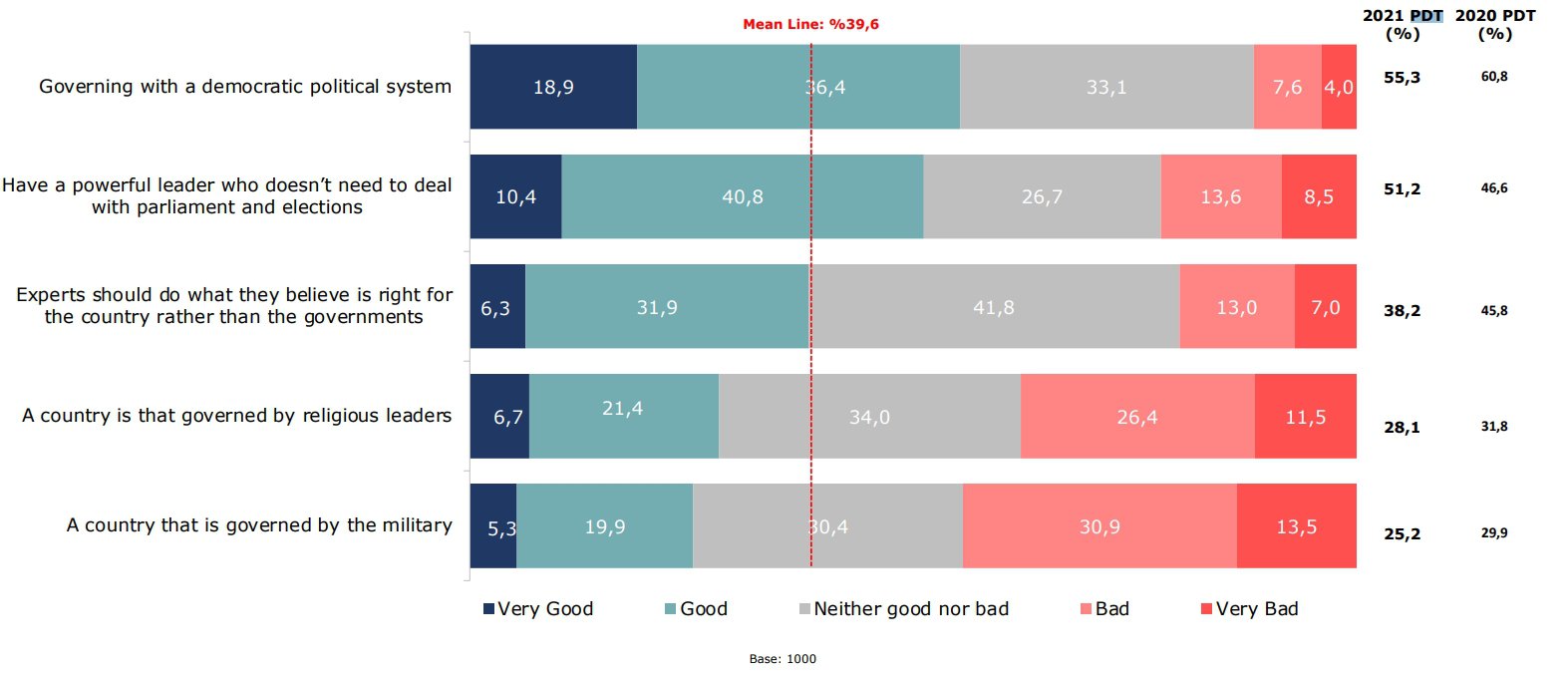 Click on the images to enlarge
Click on the images to enlarge
In the previous year's study, 60.8 percent of the respondents had said democracy is a good system and 46.6 percent said a "powerful leader" system is good for the country.
The study was conducted among 1,000 people from 26 provinces between October 23 and November 5.
Confidence
The most trusted institutions are the police, the army, the gendarmerie and the Presidency, according to the study.
The confidence in the presidency was 56.9 percent in the last year, up from 49.8 percent in 2020.
The confidence in all three security organizations exceeded 60 percent, the study showed.
The Constitutional Court and the parliament also have a rate of confidence of over 50 percent.
The economy and refugees
The three most important problems were the economic problems, refugees and the coronavirus pandemic, according to the survey.
Those who said the economy is the most important problem increased from 12.3 percent in 2020 to 22.7 percent in 2021.
When asked about what is the reason for the economic problems, 20.7 percent of the respondents said "high interest rates," and 13.7 percent said "external financial attacks."
Over 65 percent of the respondents also agreed with the statement that the reason for poverty was the unjust distribution of wealth.
The share of those who cited refugees as the most important problem also rose significantly, from 6 percent to 17.9 percent.
More than 55 percent of the respondents said they were worse off economically compared to the previous year.
The economy was the most important problem for both Turks and Kurds whereas the second most important problem for Kurds was the restriction of personal freedoms, which was the most important problem for only 5.6 percent of Turks, showed the study.
Over 18 percent of Turks and 15 percent of Kurds cited refugees as the most important problem.
Boys, girls and spiritual values
More than 58 percent of the respondents agreed that teaching the children "the spiritual values of the Turkish nation" is much more important than teaching democracy to them. Only 13 percent of the respondents opposed this statement.
Also, more than 59 percent of the respondents thought "we should take only the techniques of the West and preserve our culture and identity."
Over 42 percent of the respondents agreed with the statement that "Closeness between girls and boys corrupts the morality of society" whereas 36.4 percent opposed it.
Elections
More than 64 percent of the respondents said there was no need for a snap election while only 16.9 percent said it was necessary.
When asked about which party they would vote for if elections were held today, 35.9 percent of the respondents said they would vote for the ruling Justice and Development Party (AKP) and 9.7 percent said they would vote for the Nationalist Movement Party (MHP), the allies of the AKP.
The combined voting rate of the two parties that form the People's Alliance was 45.6 percent, down from 53.6 percent in the 2018 election.
The two opposition parties forming the Nation's Alliance, the Republican People's Party (CHP) and the İYİ (Good) Party, would get 24.6 percent and 9.4 percent of the votes, respectively. Their combined voting rate was 33.6 percent in the 2018 election. (VK)






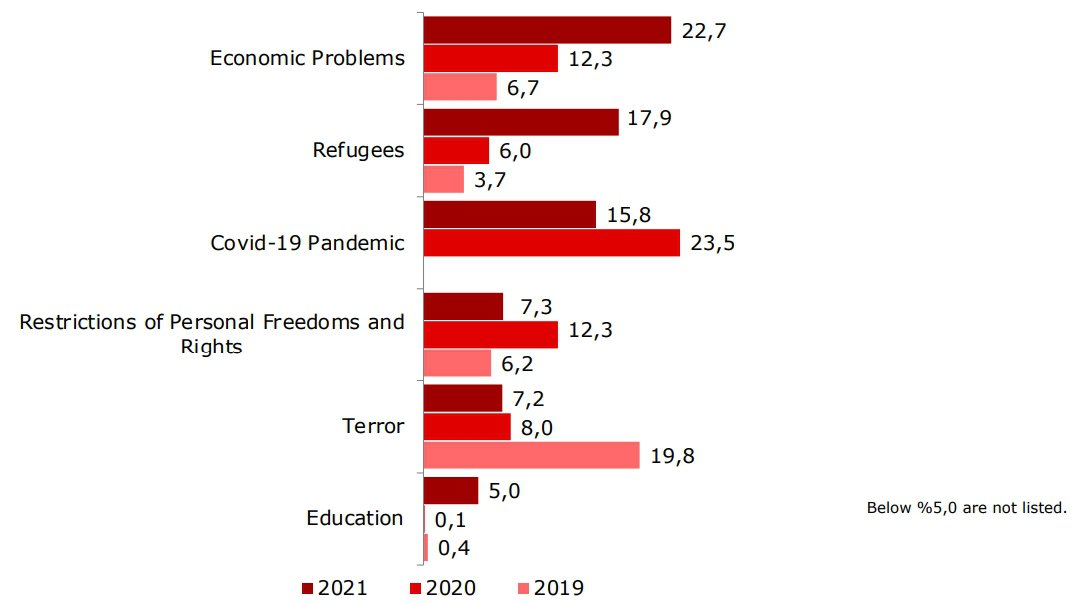
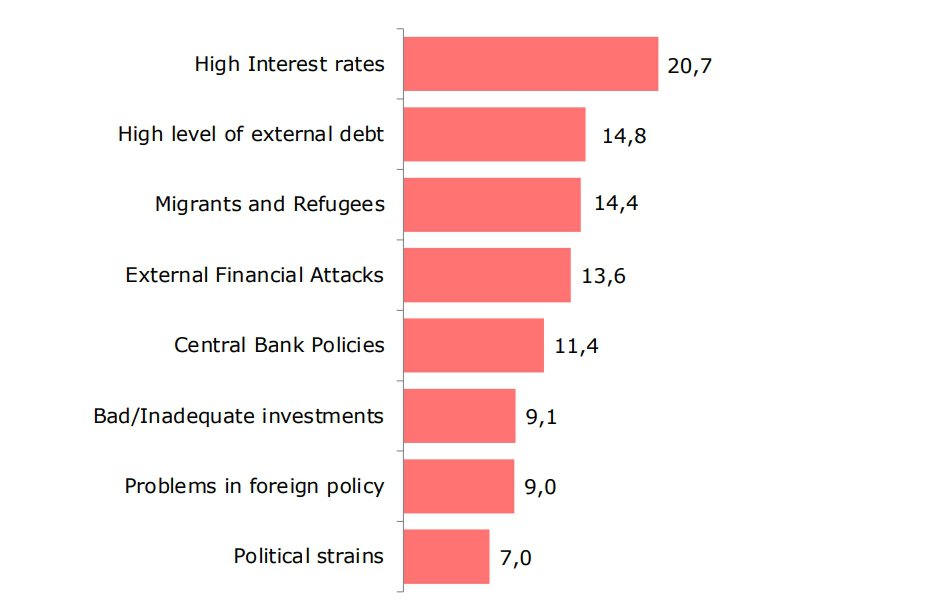
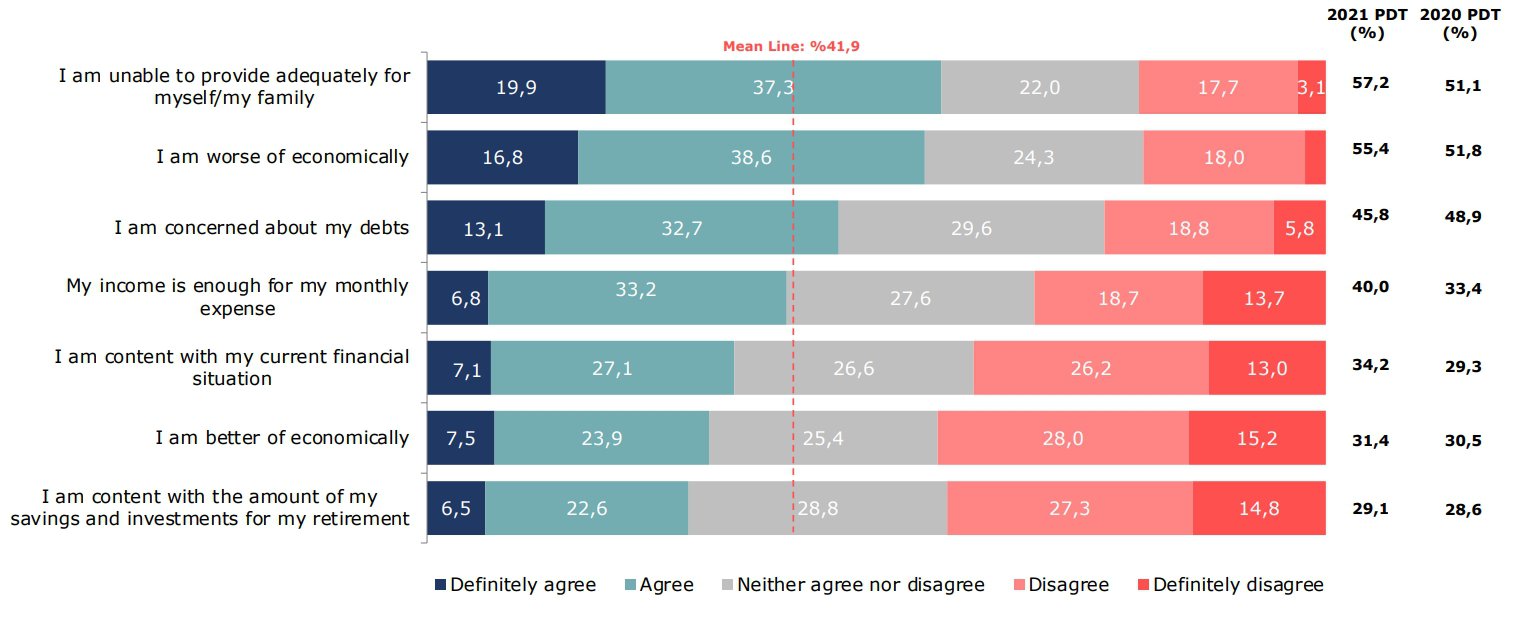
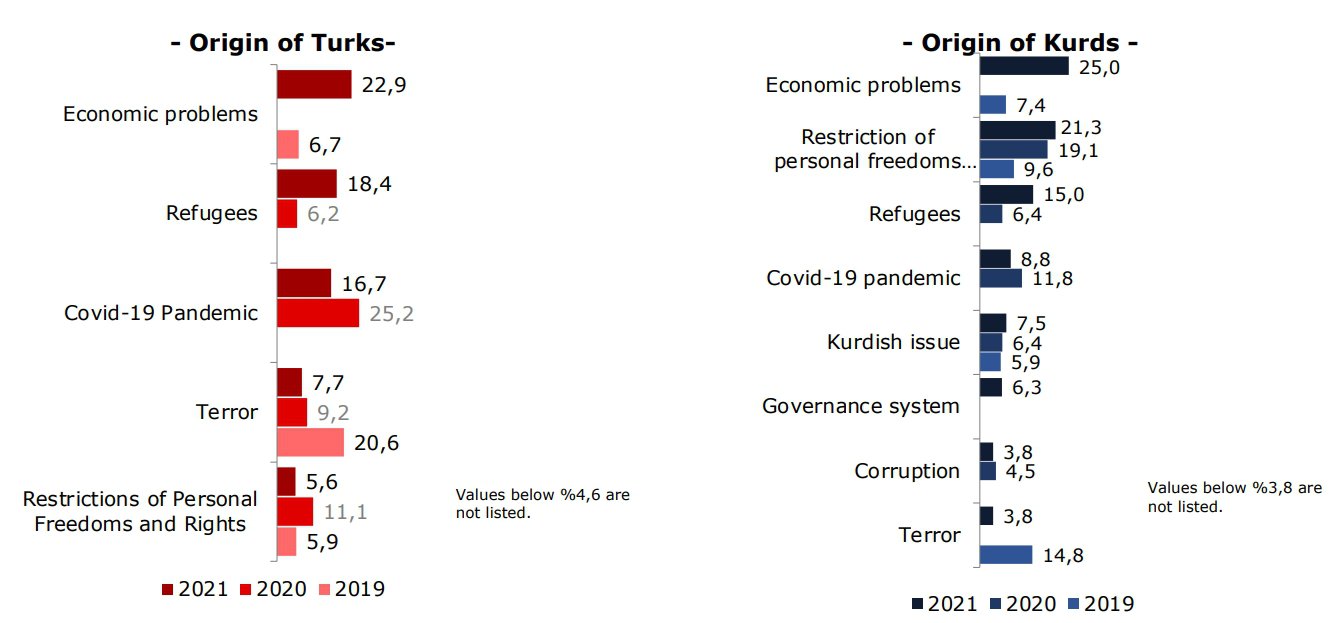
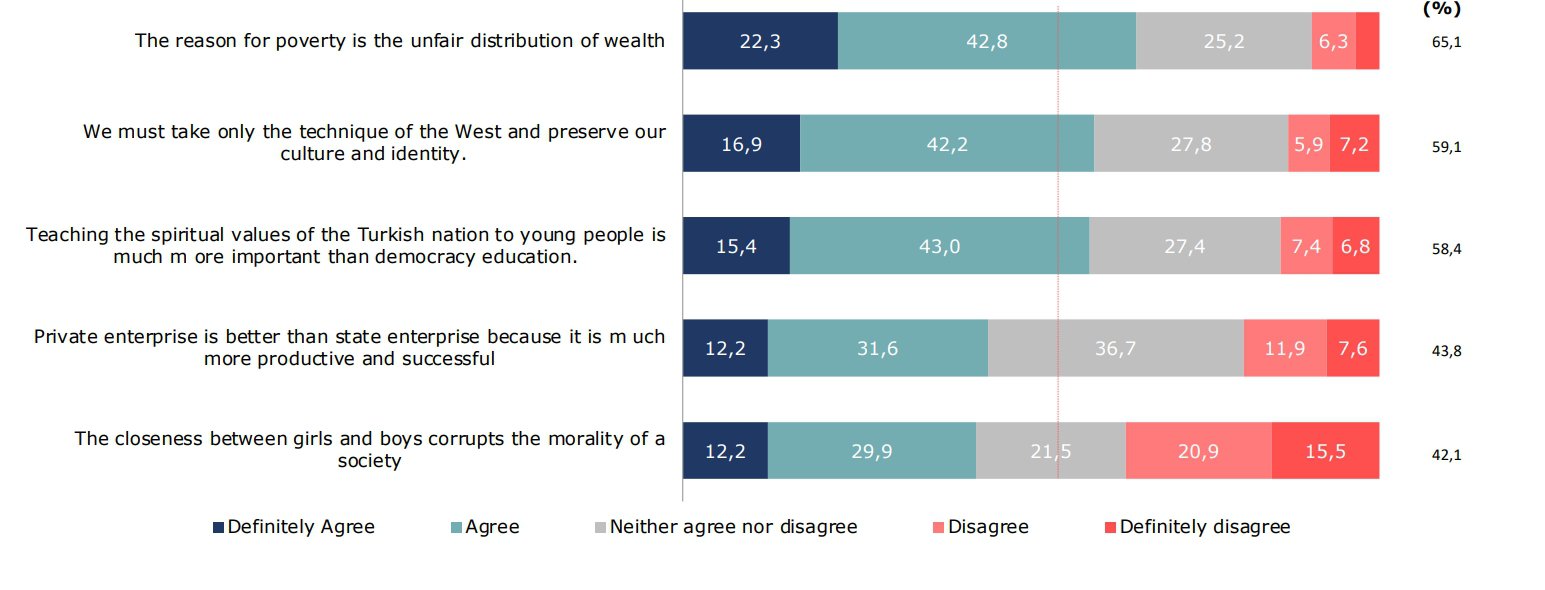

_erdogan-siir2sa.jpg)
.jpg)
